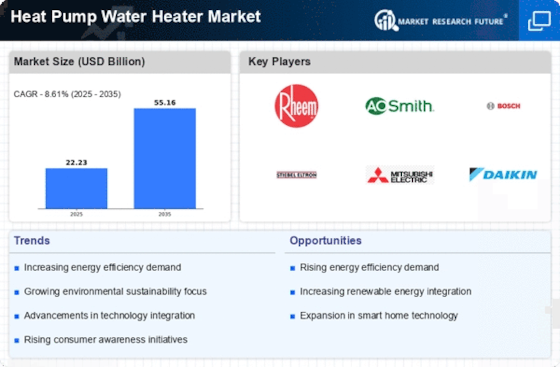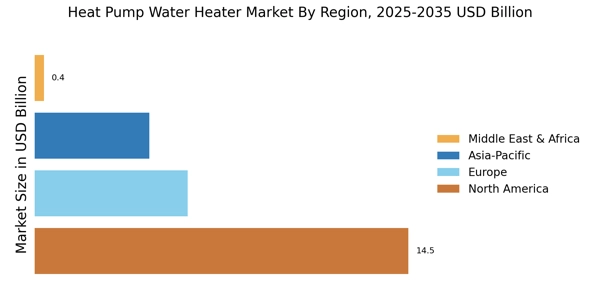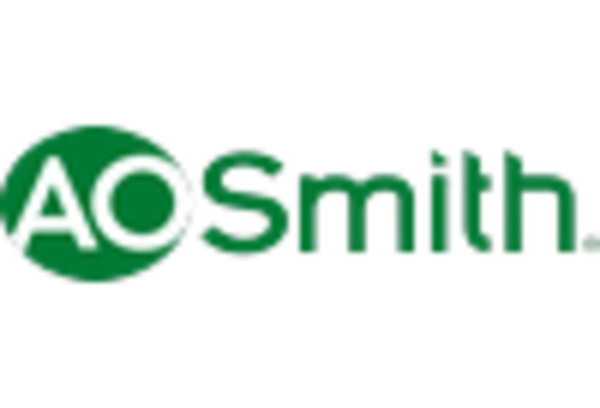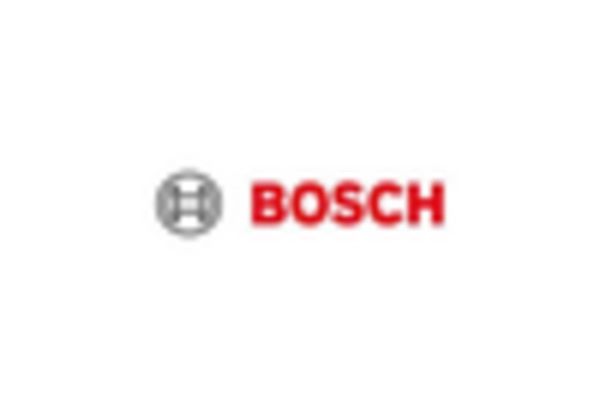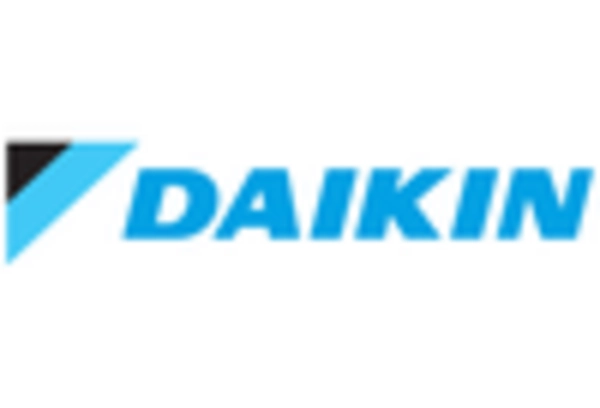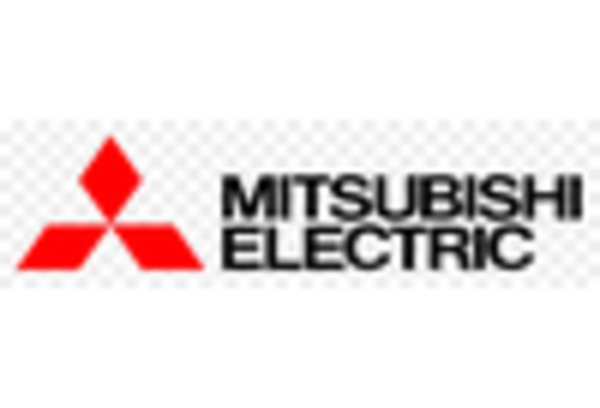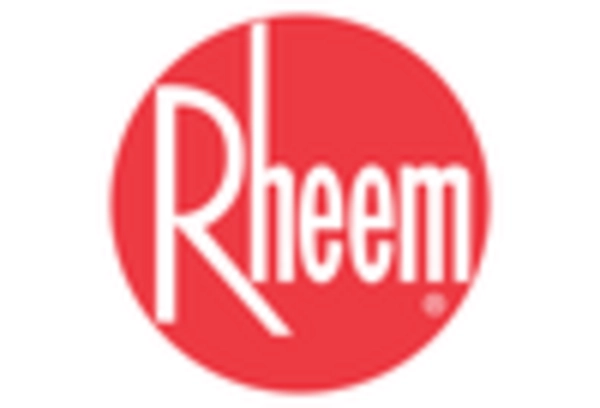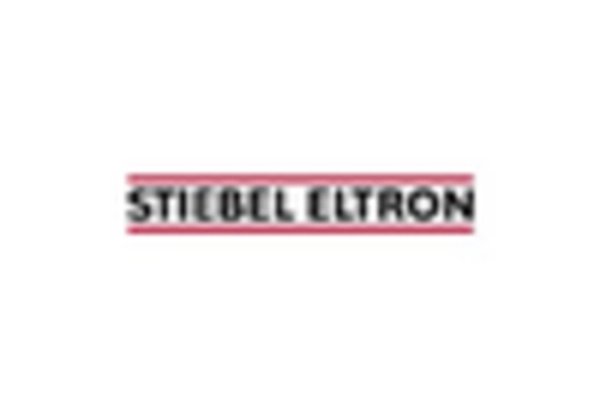The Heat Pump Water Heater Market is currently characterized by a dynamic competitive landscape, driven by increasing energy efficiency regulations and a growing consumer preference for sustainable solutions. Major players such as Rheem Manufacturing Company (US), A. O. Smith Corporation (US), and Daikin Industries, Ltd. (JP) are strategically positioning themselves through innovation and regional expansion. Rheem, for instance, emphasizes its commitment to energy-efficient technologies, while A. O. Smith focuses on enhancing its product portfolio to cater to diverse consumer needs. Daikin, on the other hand, leverages its global presence to penetrate emerging markets, thereby shaping a competitive environment that is increasingly focused on sustainability and technological advancement.
In terms of business tactics, companies are localizing manufacturing to reduce costs and optimize supply chains, which appears to be a prevalent strategy among key players. The market structure is moderately fragmented, with several companies vying for market share. This fragmentation allows for a variety of offerings, yet the collective influence of major players like Bosch Thermotechnology (DE) and Mitsubishi Electric Corporation (JP) is significant, as they drive innovation and set industry standards.
In August 2025, Rheem Manufacturing Company (US) announced the launch of its latest line of heat pump water heaters, which incorporates advanced smart technology for enhanced energy management. This strategic move not only aligns with the growing trend towards digitalization but also positions Rheem as a leader in the integration of smart home technologies, potentially attracting tech-savvy consumers looking for efficiency and convenience.
Similarly, in September 2025, A. O. Smith Corporation (US) unveiled a partnership with a leading renewable energy firm to develop hybrid heat pump systems. This collaboration is strategically important as it allows A. O. Smith to enhance its product offerings while tapping into the renewable energy market, thereby appealing to environmentally conscious consumers and aligning with global sustainability goals.
In July 2025, Daikin Industries, Ltd. (JP) expanded its manufacturing capabilities in Southeast Asia, aiming to meet the rising demand for energy-efficient water heating solutions in the region. This expansion is indicative of Daikin's strategy to localize production and reduce lead times, which could enhance its competitive edge in a rapidly growing market.
As of October 2025, the competitive trends in the Heat Pump Water Heater Market are increasingly defined by digitalization, sustainability, and the integration of artificial intelligence. Strategic alliances are becoming more prevalent, as companies recognize the need to collaborate to innovate and meet evolving consumer demands. Looking ahead, competitive differentiation is likely to shift from price-based competition to a focus on innovation, technology, and supply chain reliability, as companies strive to offer unique value propositions in a crowded marketplace.


